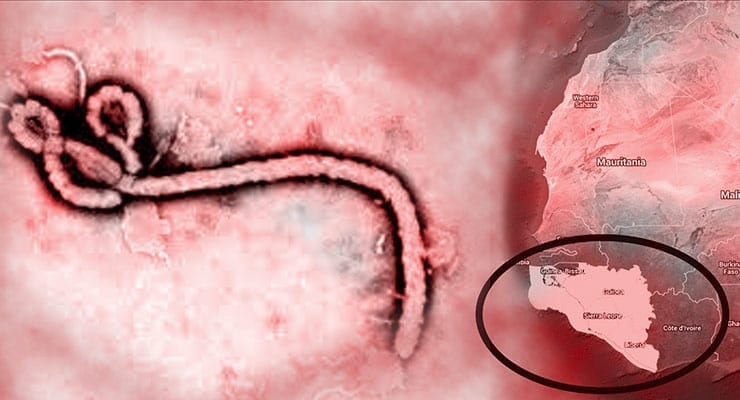The U.S. Food and Drug Administration (FDA) last week issued an Emergency Use Authorization (EUA) for an Ebola diagnostic test developed by the Department of Defense (DoD).
The Ebola Zaire Target 1 (EZ1) real-time reverse transcription (rRT) polymerase chain reaction (PCR) (TaqMan) (.pdf) assay, known as the EZ1 assay, has been authorized if infection with Ebola Zaire virus (detected in the West Africa outbreak in 2014) is suspected based on clinical and epidemiological screening criteria.
FDA issued the EUA based on data submitted by DoD to the FDA and on the U.S. Secretary of Health and Human Services’ (HHS) declaration that circumstances exist to justify the emergency use of in vitro diagnostic tests for the detection of the Ebola virus.
The emergency authorization may be terminated post-crisis by either HHS or FDA.
A positive test result from the EZ1 rRT-PCR Assay indicates that the patient is presumptively infected with the Ebola Zaire virus. The test does not indicate the stage of infection, nor does it distinguish between different Ebola Zaire virus strains. Laboratory test results should always be considered in the context of clinical observations and epidemiologic data in making a final diagnosis.
“The EZ1 rRT-PCR Assay has been designed to minimize the likelihood of false positive test results. However, in the event of a false positive result, the patient may be placed in isolation or in contact with other potentially infected/infected patients,” states the FDA guidance. “While isolation or quarantine measures may likely already be in place for symptomatic persons meeting the case definition, there is a chance that quarantine may also be used for asymptomatic persons who test positive.”
“The clinical features of the illness and the type and risk of exposure are the keys to making patient management and isolation decisions. A negative EZ1 rRT-PCR Assay result should not be interpreted as demonstrating that the patient does not have Ebola Zaire virus infection,” states the announcement. “The possibility of a false negative result should especially be considered if the patient’s recent exposures or clinical presentation indicate that Ebola Zaire virus infection is likely, and diagnostic tests for other causes of hemorrhagic illness are negative.”
The EZ1 assay has been authorized for use on the Applied Biosystems 7500 Fast Dx Real-Time PCR Instrument (ABI 7500 Fast Dx), Roche LightCycler (LightCycler), and Biofire Defense Joint Biological Agent Identification and Diagnostic System (JBAIDS) to provide Ebola Zaire virus testing capability to sites that currently perform PCR testing on these instruments.
The last EUA issued by the FDA was on June 5, 2013 for the emergency use of the CDC Novel Coronavirus 2012 Real-time RT-PCR Assay for the presumptive detection of Middle East Respiratory Syndrome Coronavirus (MERS-CoV).
Editor’s Update: Additional details regarding the EUA request and approval process were made available in the Federal Register on September 17, 2014.


